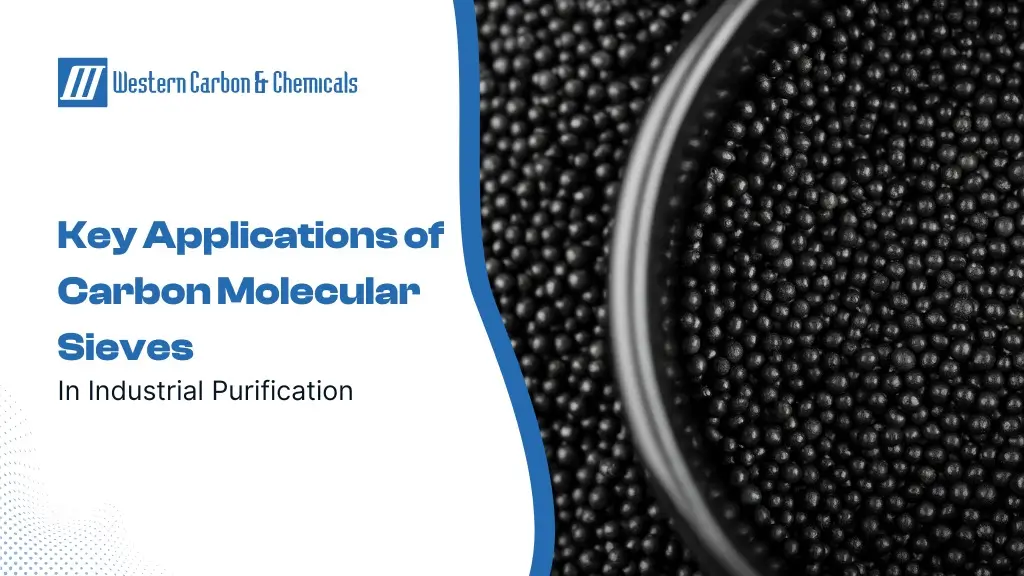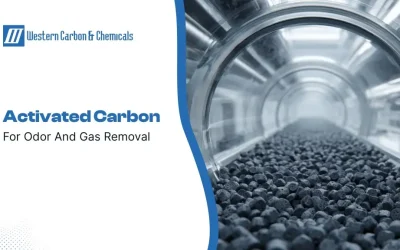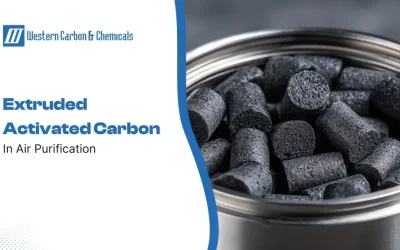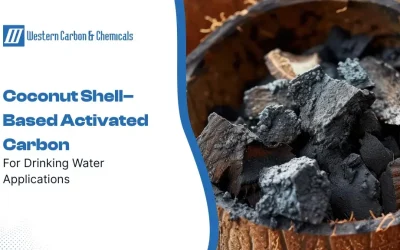What are Carbon Molecular Sieves (CMS)
Carbon Molecular Sieves are specialized adsorbents crafted from carbon-rich materials and refined through controlled activation processes. They are designed to separate gases with minute differences in molecular size. Unlike conventional activated carbon, which focuses on surface adsorption, CMS works on molecular sieving—allowing smaller molecules to pass through while retaining larger ones. This characteristic makes them invaluable in industrial purification systems where precision and purity are paramount.
The Science Behind Carbon Molecular Sieves
The effectiveness of Carbon Molecular Sieves lies in their intricate pore structure, typically ranging between 4–5 angstroms. These micropores enable selective adsorption based on molecular dimensions and diffusion rates. The internal surface is hydrophobic and chemically inert, ensuring consistent performance under varying operational conditions. The adsorption process relies on kinetic selectivity, where gases with faster diffusion rates—like oxygen—pass through more quickly, while slower diffusing gases—like nitrogen—are retained.
Why Industries Prefer Carbon Molecular Sieves
Industries gravitate toward CMS due to its exceptional selectivity, stability, and energy efficiency. In contrast to traditional separation methods like cryogenic distillation, CMS-based systems operate at ambient temperatures, drastically reducing energy consumption. Their regenerative capability through simple pressure swings further lowers operational costs. Additionally, CMS exhibits long service life and consistent performance even under high-pressure conditions, making it a cost-effective and sustainable choice.
CMS in Nitrogen Generation Systems
One of the most widespread uses of Carbon Molecular Sieves is in on-site nitrogen generation. Through a process known as Pressure Swing Adsorption (PSA), CMS selectively adsorbs oxygen and other trace gases, delivering high-purity nitrogen. This system has become the backbone of industries such as electronics, food packaging, and pharmaceuticals. Unlike cryogenic plants, PSA units are compact, quick to install, and require minimal maintenance—enabling continuous nitrogen supply with purity levels exceeding 99.9%.
Purification of Hydrogen and Methane Streams
Hydrogen and methane purification represent another cornerstone application of CMS technology. In refineries and chemical plants, CMS is used to recover hydrogen from off-gases or to enhance methane purity for downstream processes. By removing contaminants like CO₂, CO, and N₂, CMS ensures a cleaner, more efficient fuel stream. This not only improves combustion efficiency but also protects catalysts in subsequent chemical reactions, extending their lifespan and reliability.
Oxygen Enrichment and Air Separation Applications
Carbon Molecular Sieves also play a pivotal role in air separation units. By selectively removing nitrogen, CMS allows for the production of oxygen-enriched air. This has numerous industrial implications—from metal cutting and glass manufacturing to medical oxygen supply systems. The CMS-based approach is particularly advantageous for its scalability, allowing both small-scale medical devices and large industrial plants to operate with consistent oxygen concentration control.
Use of CMS in Biogas Upgrading
As renewable energy gains prominence, biogas upgrading using Carbon Molecular Sieves has emerged as a sustainable purification method. Raw biogas typically contains methane, carbon dioxide, hydrogen sulfide, and moisture. CMS effectively removes CO₂ and other trace impurities, thereby increasing methane concentration. The result is biomethane—a clean, high-energy fuel suitable for injection into natural gas grids or use as vehicle fuel. This application underscores CMS’s role in advancing circular economy models.
Application in Petrochemical and Refining Industries
In petrochemical operations, purity defines process efficiency. CMS units are employed to purify feedstock gases, ensuring consistent quality and protecting sensitive catalysts. For instance, during reforming or cracking processes, trace gases like nitrogen and oxygen can impair catalyst performance. CMS adsorbers prevent such contamination, enhancing yield and reliability. Their robust chemical stability enables continuous operation even under harsh temperature and pressure conditions typical of refinery environments.
Environmental Applications of Carbon Molecular Sieves
Beyond traditional industrial use, CMS has found relevance in environmental purification systems. It helps in capturing volatile organic compounds (VOCs), odorous gases, and other pollutants from air streams. This contributes to better air quality and compliance with environmental regulations. Because Carbon Molecular Sieves can be regenerated and reused multiple times, they present an eco-conscious alternative to single-use purification media, aligning with global sustainability objectives.
Advances in CMS Manufacturing and Customization
Recent innovations in material science have propelled Carbon Molecular Sieves into a new era of performance. Manufacturers are experimenting with novel carbon precursors, such as polymer-based materials and renewable biomass, to create customized pore structures. By fine-tuning activation parameters and thermal treatments, CMS can now be optimized for specific industrial separations. These advancements are enhancing both selectivity and adsorption capacity, positioning CMS as a next-generation solution in gas purification.
Also know Top Considerations When Selecting Activated Carbon Manufacturers in India
Conclusion
Carbon Molecular Sieves have redefined the standards of industrial purification. Their unique ability to separate gases with molecular precision, combined with energy efficiency and durability, makes them indispensable across diverse sectors—from nitrogen generation to biogas upgrading. As industries continue to evolve toward greener and more efficient processes, the role of CMS will only expand. With ongoing innovation in manufacturing and sustainability, Carbon Molecular Sieves stand at the forefront of modern purification technology, shaping a cleaner industrial future.
Western Carbon & Chemicals, a leading Activated Carbon Manufacturer in India, is at the forefront of delivering high-quality Carbon Molecular Sieves tailored to meet these diverse industrial requirements. With decades of expertise and a commitment to innovation, we are shaping the future of cleaner, more efficient purification systems worldwide.


 Summarize this Article with AI
Summarize this Article with AI



